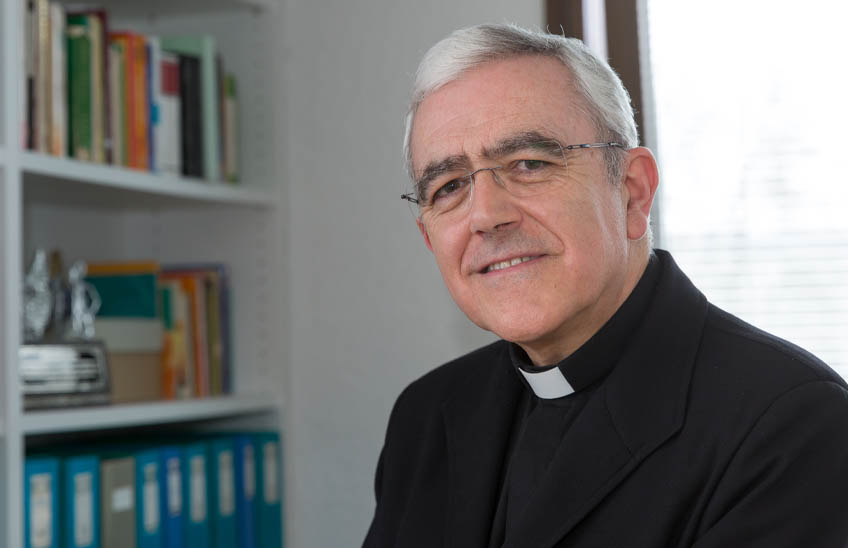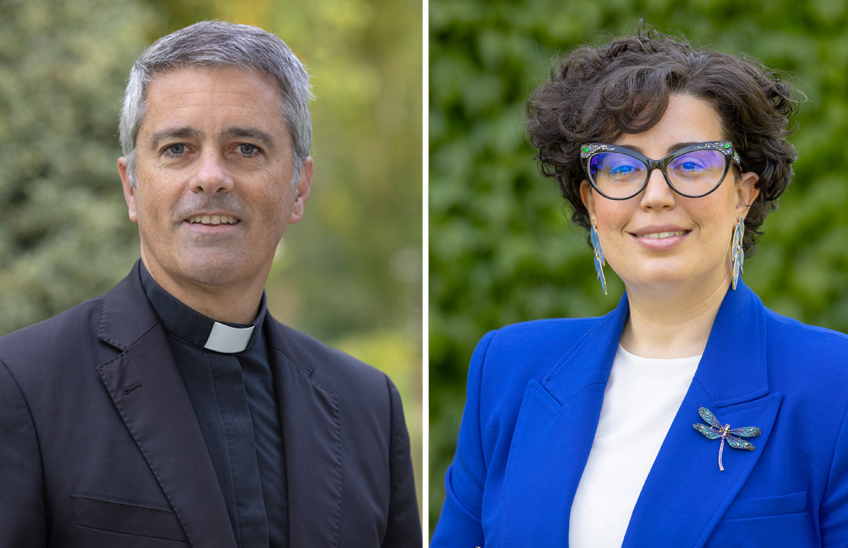Juan Luis Lorda: "The best work Dostoyevsky wrote was his life, from which his novels live".
The University commemorates the Russian writer during an academic workshop on the occasion of the 200th anniversary of his birth.

FotoManuelCastells/From left to right, Pablo Blanco, Juan Luis Lorda, Gabriel Insausti, Mónica Codina and Lucas Buch.
01 | 03 | 2022
"The best work that Dostoyevsky wrote was his life, from which his novels live on". This was stated by Juan Luis Lorda, professor at the University, during the lecture that he gave at the Academic workshop 'Dostoyevsky: a prophet for times of darkness', organised by the department of Systematic Theology of the School of Theology.
Launched on the occasion of the celebration of the 200th anniversary of the birth of the Russian writer, it was also attended by professors Mónica Codina, Gabriel Insausti and Pablo Blanco, who presented and moderated the workshop.
Professor Lorda, who holds a doctorate in Dogmatic Theology, wanted to highlight in his exhibition the Christian and theological profile of the writer. To this end, he emphasised the different stages of his life: "A prophetic Dostoyevsky, in which there is an enlightened atheism (we do not need God because we are already saved, we live well). Then, a Christian Dostoyevsky, where the author is a young engineer with a desire for literature and thought, but marked by debts due to his submission gambling and the time he was condemned and detained. The women in his life, especially his daughter and his last wife, played a role in this stage core topic . Finally, the third stage reflects a theologian Dostoyevsky, who does not elaborate a theology but thinks about faith. There is a pathway in his life and a struggle that is reflected in his characters, with the worst of himself, gambling, and also genius, but with the Christian triumph of compassion".
In this regard, he recalled the quotation from the Gospel of St. John that the author loved so much, which he used in The Brothers Karamazov and which is also written on the epitaph of his tomb: "Truly I tell you, unless the grain of wheat dies, it remains unfruitful".
Mónica Codina, PhD in Philosophy and lecturer at School at speech, focused her discussion paper on 'The polyphonic character of Dostoyevsky's narrative'. A narrative which, as she explained, allows us to connect it with our contemporary experience of the world: "On the one hand, because he anticipated the ideological and practical background of the Russian revolution of 1917; but also because, through the actions of his characters, he knew how to describe the vital consequences of the different ways of understanding the world, as is the case today, for example, with the conflict between Russia and Ukraine".
He also pointed out that Dostoyevsky was an intellectual in whom the ideological discussion between the Enlightenment, revolutionary movements and Christian thought was translated into facts of life: "And life itself makes it clear that, if man follows certain paths, they lead to destruction".
Gabriel Insausti, doctor at Philology, translator and poet, was the third speaker of the workshop. In his speech, he spoke about misery and redemption, especially on the basis of the book The Idiot. He said of Dostoyevsky that "he was not an anthropological optimist" and that "he was very conscious of misery as a starting point". He also emphasised the paradox and enormous distance between the ideals of that society and the real status in which it found itself, which led to the outbreak of the Russian Revolution: "That is why many of his characters suffer from the presence of evil within themselves and outside. Faced with this evil, he thinks he must remedy it; at the same time, because it is so great, he feels impotent".



